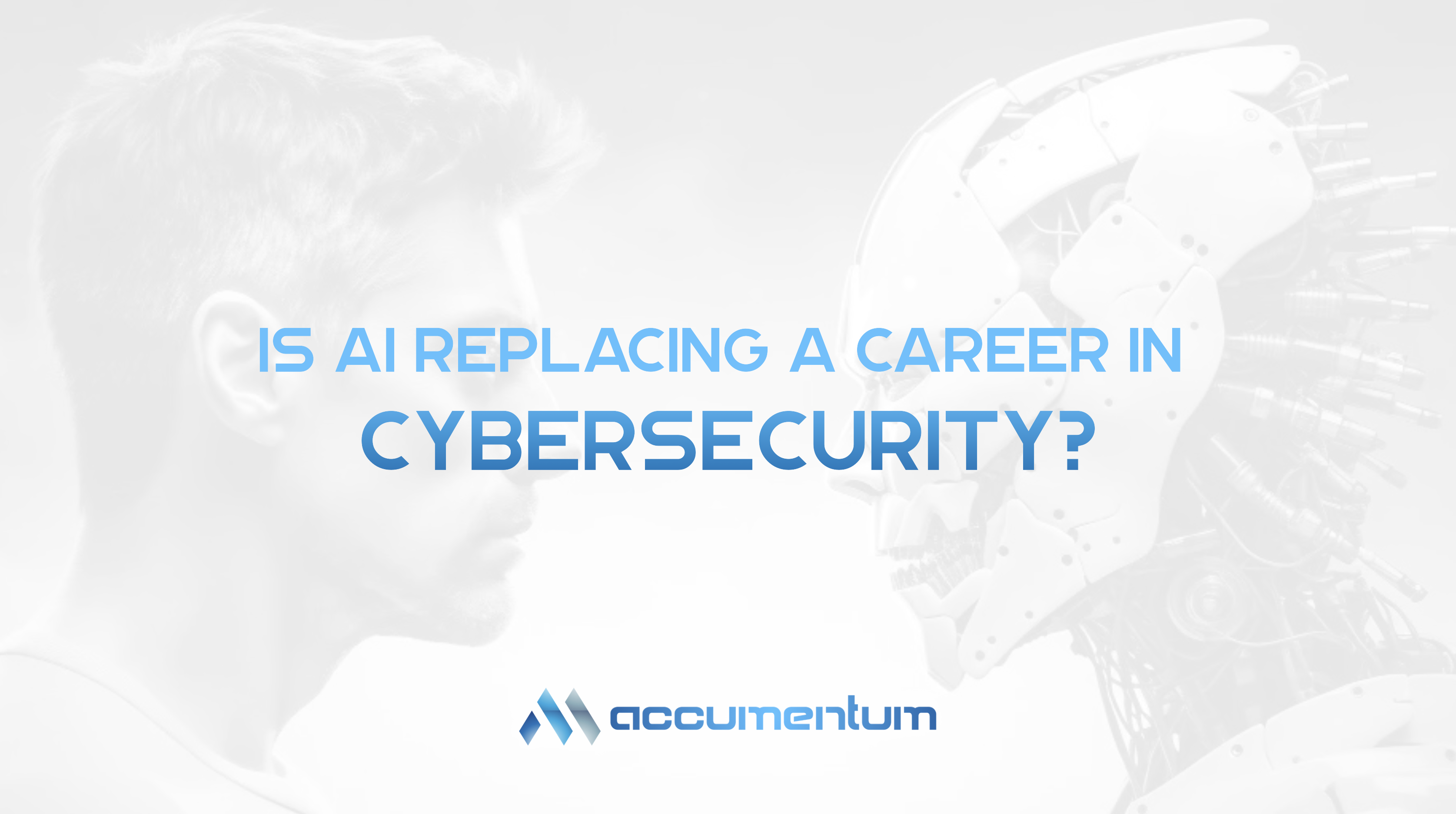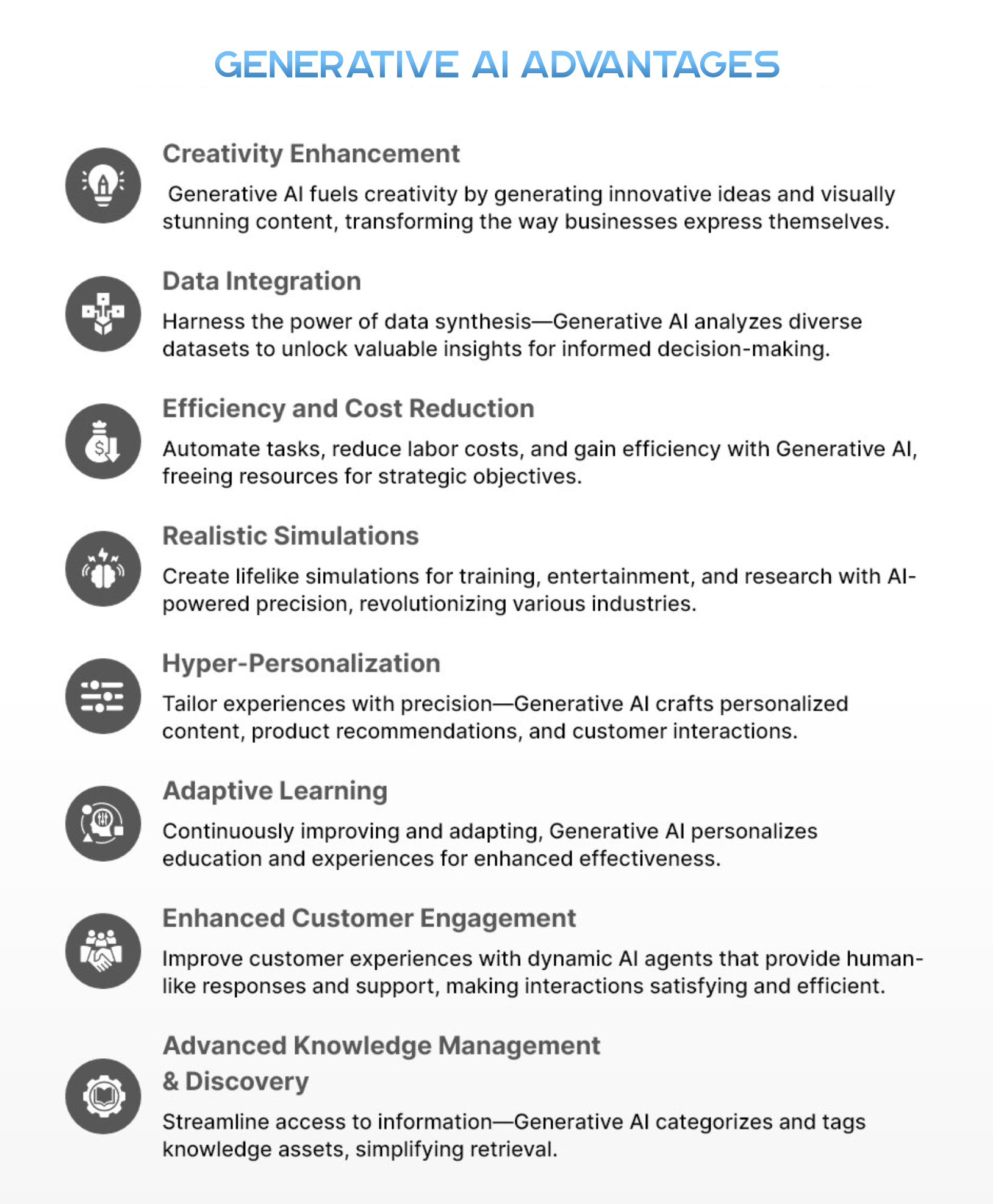Is AI Replacing A Career In Cybersecurity?

Curious about AI’s impact on cybersecurity careers? Explore how AI is transforming job functions, the ongoing importance of human skills, and the essential future competencies to stay ahead.
AI is transforming global workflows, sparking debates about job displacement across various sectors, including cybersecurity, which finds itself at the heart of this conversation.
The pressing concern here is whether AI, renowned for its prowess in data processing and content creation, could render cybersecurity professionals obsolete. Let’s dive straight into this issue.

The introduction of AI into cybersecurity represents one of the most significant transformations in the sector.
- AI-powered threat intelligence systems analyze enormous data sets to uncover patterns, accelerating the detection of emerging threats.
- With AI, penetration testing now involves simulating cyber attacks on a massive scale, quickly pinpointing system weaknesses.
- In malware analysis, AI swiftly examines harmful code, continuously learning to enhance its ability to foresee and counteract new threats.
- The realms of security workflow creation and Security Operations Center (SOC) operations are undergoing a revolution, where AI enables no-code solutions that are not only feasible but also surpass previous standards in speed, efficiency, and security.

With such advancements in technology, it’s inevitable to ponder: Is AI set to eliminate the need for human cybersecurity teams? Not quite yet.
Human intuition and judgment remain vital in cybersecurity. While AI and automation shine in detecting patterns and processing data, they fall short of the depth of understanding and inventive thinking inherent to humans. Cybersecurity’s essence—comprehending the intricate nature of threats and devising tactics against sophisticated attacks—remains fundamentally human.
AI, despite its progress, doesn’t fully capture the complexities of human motives or the situational context of threats, which are often driven by human factors. Thus, human supervision and strategic input remain crucial.
However, there’s a twist. As cyber threats evolve, the skill set for cybersecurity experts must also adapt. There’s a pressing need to become adept with AI and machine learning tools, which are now central to the field.
Many aspects of cybersecurity work require the unique perspective only humans can provide, yet there’s also considerable scope for automation and AI assistance. Staying updated with the latest developments and standards is always advantageous for those in the security field.

The trajectory of AI in cybersecurity points towards a deeper, more intricate fusion, where AI not only supports but significantly augments cybersecurity measures. With cyber threats escalating in complexity and AI-driven attacks becoming more prevalent, the field will increasingly depend on AI’s generative powers, deep learning techniques, and natural language processing to preemptively detect and neutralize dangers before they materialize. In this envisioned future, AI might not only react to known threats with automation but also employ predictive analytics to guard against new threats.
This accelerating technological advancement demands that cybersecurity professionals expand their expertise at an equal pace. There’s a growing necessity for a well-rounded skill set that not only encompasses technical know-how and interpersonal skills but also proficiency in utilizing AI technologies.
Despite these advancements, the cybersecurity sector will still face a significant skills shortage, with estimates suggesting a shortfall of around 3.4 million professionals. This gap continues to widen annually. Here, AI-human synergy can play a pivotal role, with AI taking on repetitive tasks to alleviate the workload on overburdened teams, allowing even entry-level staff to make substantial contributions.
We are on the brink of an era where the blend of AI and human ingenuity will forge the most robust cybersecurity defenses we’ve ever seen.

How can cybersecurity experts ensure their skills remain relevant? Beyond the basics of cybersecurity, there’s a significant advantage in mastering skills connected to AI operations and oversight. This encompasses learning data science, analyzing AI algorithms, and gaining proficiency in AI-driven security tools.
Enhancing one’s knowledge in these domains not only increases one’s value within an enterprise but also opens up avenues through further education, obtaining certifications, engaging with online learning resources, and being active in professional communities and webinars.
The job market is also poised to evolve, creating novel roles like AI security analysts and data scientists specialized in cybersecurity. These roles will demand a fusion of traditional cybersecurity know-how with AI-specific skills, presenting fresh and dynamic career options for those ready to mix these competencies.
The key takeaway is to see AI as an ally in the workplace, not as competition.
Top-tier cybersecurity professionals will use AI to enhance their effectiveness, delegating routine tasks to AI while they tackle high-level strategic issues and navigate the intricate world of cyber threats. By merging their strategic insights with AI’s capabilities, they will not only become more productive but will also carve out a crucial role for themselves in the industry.

AI is revolutionizing cybersecurity, not to dominate but to elevate our defensive strategies, making them more precise and effective. However, the essence of cybersecurity—the nuanced understanding of motives and contexts—remains a human forte, ensuring both our digital landscapes and our careers remain secure.
Eager to expand your knowledge on AI’s role in this field? Certifications in the field can provide you with the edge needed in the competitive job market. With these top courses, you can gain in-depth knowledge, hands-on experience, and a globally recognized certification to advance your career. Each course offers unique advantages, so explore the one that best fits your goals and get certified today!
Accumentum® is the leading training provider for a vast array of technology vendors including AWS, Cisco, CIW, CompTIA, EC-Council, Fortinet, GIAC, HRCI, ISACA, ITIL, Microsoft, Palo Alto, PMI, Scrum, SHRM, Veritas, VMWare, and more.


